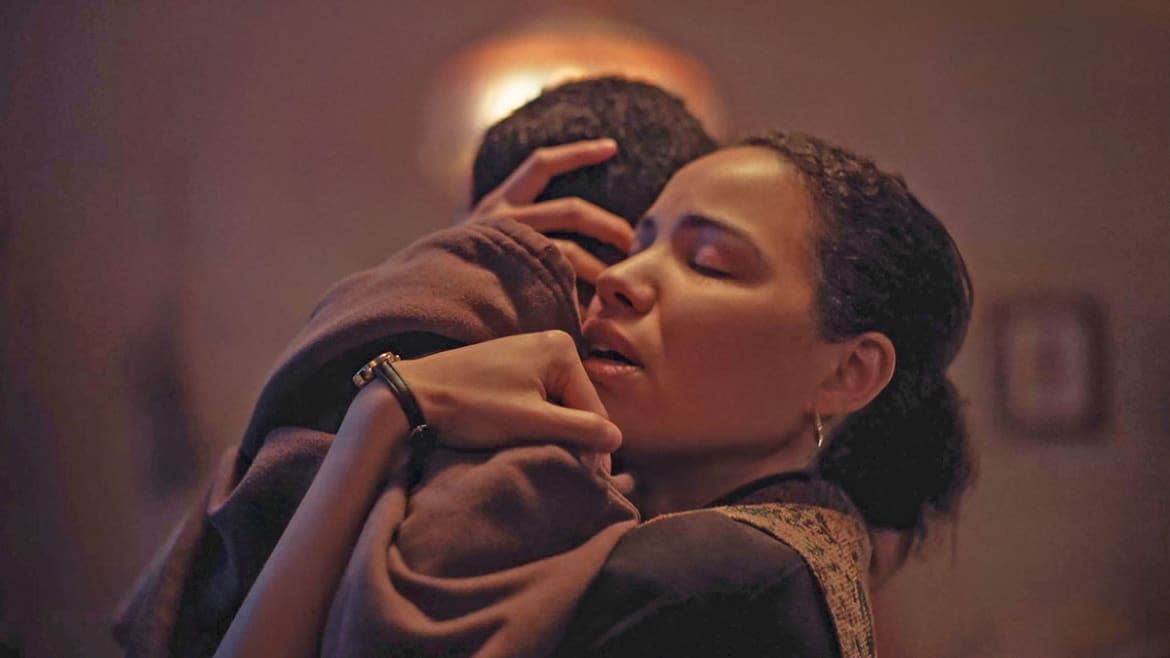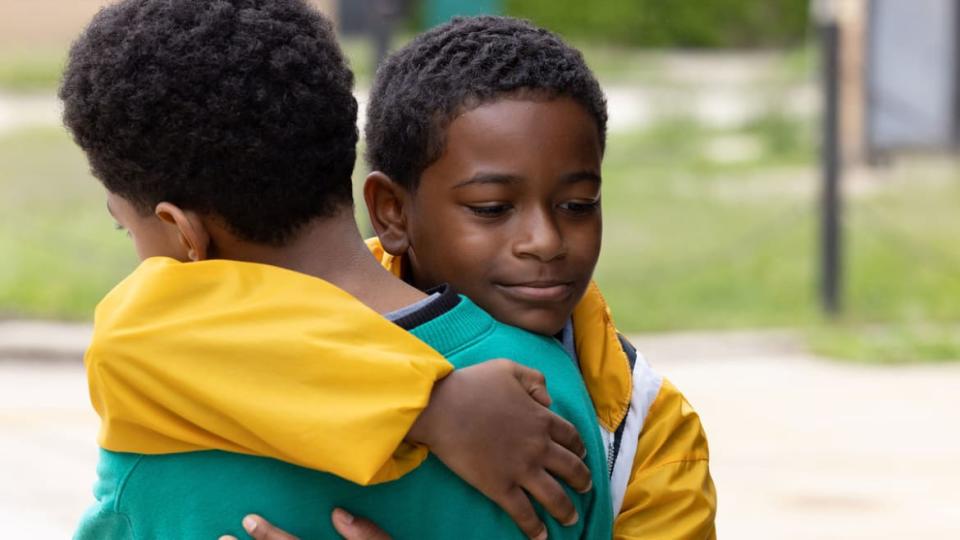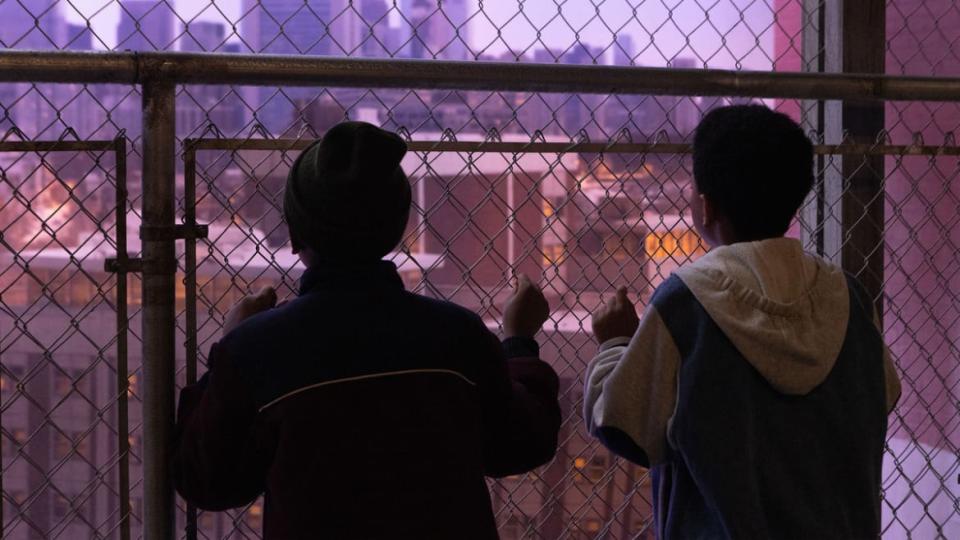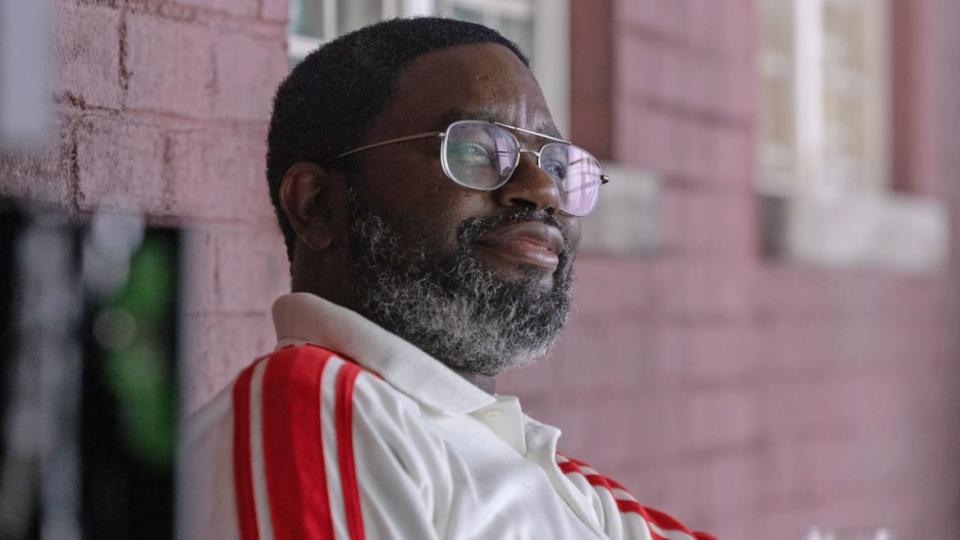‘We Grown Now’: A Child’s Devastating Death Rocks New Coming-of-Age Drama

- Oops!Something went wrong.Please try again later.
- Oops!Something went wrong.Please try again later.
Everyone remembers their first brush with death. Whether you’re 5 or fortunate enough to be 75, coming face-to-face with your own mortality for the first time is an experience that remains permanently seared into your mind; you can remember where you were, what you were thinking, and, probably, being engulfed in a new kind of sadness that you don’t quite understand.
That’s certainly the case for Malik (Blake James Cameron) and Eric (Gian Knight Ramirez), the two children at the heart of We Grown Now, a fresh, empathetic new indie that lands in theaters April 26 after receiving a warm critical reception at last fall’s Toronto International Film Festival.
In the fall of 1992, Malik and Eric spend their days enjoying their lives and close-knit friendship as residents in Chicago’s Cabrini-Green public housing complex. But the terrible thing about idyllic childhood joy is that there’s a countdown clock on how long it lasts. Innocence slips away faster than we can anticipate, so when a horrific tragedy rocks Cabrini-Green, Eric and Malik find their friendship challenged and the simplicity of their daily lives forever altered.
We Grown Now’s title suggests that Malik and Eric have to mature fast, but the film captures this rapid development through their youthful eyes. Writer-director Minhail Baig leaves enough room for the bright glow of childhood wonder to shine through the newfound cracks in the boys’ altered lifestyles. While that radiance is certainly compelling, watching the film as an adult can sometimes feel didactic and overly sentimental. The same authenticity that benefits We Grown Now at its start is ultimately what holds the film back as Malik and Eric attempt to navigate something that they have no frame of reference for. But that’s where the film’s sweet saving grace—a humble and understated performance by Jurnee Smollett as Malik’s mother Dolores—comes in to scoop the film up and hold it in its arms. Smollett broadens the film’s scope beyond its juvenile point of view, and helps We Grown Now reach the intimacy it’s continually grasping at.

Blake Cameron James and Gian Knight Ramirez in ‘We Grown Up’
For the first half of the film, Eric and Malik are all but carefree. As grade school kids, they’re more concerned with the current fad that gets you clout on the playground: Sprinting toward a pile of mattresses and jumping as high as they can before a soft landing. Hurtling through the air, they stay preserved in the weightlessness of boyhood youth, they even seem naive to the idea that their families live in subsidized public housing. They have food on the table, their parents are employed, and, by most measures, they have lives full of love and stability. Though their parents struggle, the adults make an effort to shield Malik and Eric from unease, until that choice is ripped away from both parents and children.
In late October 1992, 7-year-old Dantrell Davis is shot and killed in Cabrini-Green by a local gang member. The real-life event rocked the Chicago area and made national headlines, while changing the atmosphere around Cabrini-Green entirely. One day, when Malik and Dolores return home, a crowd is gathering outside of their apartment complex, brought onto the street by police. Everyone, including the children, needs their own ID card to get in and out of the building. On top of that, police searches and full-on raids become commonplace, interfering with the peace that the kids formerly had and making their parents unable to protect them from the violent realities of everyday life. A child, just barely younger than Malik and Eric, has been murdered, and suddenly it’s as if someone pulled the mattresses out from under one of their epic playground long jumps, leaving them scraped and disoriented.

Blake Cameron James and Gian Knight Ramirez in ‘We Grown Up’
Although this switch should come as no surprise (this is a coming-of-age movie literally called We Grown Now), Baig handles it with care. The shock of the situation doesn’t present an immediate change for the kids, who try their best to go about their lives as normal, despite no facet of their lives being the same as it was before. But Baig documents this slow, steady lifestyle conversion with grace, allowing us to watch Malik and Eric try, fail, and try again to preserve their own innocence, something no child should ever have to actively pursue.
Cameron and Ramirez are gifted performers, with talent well beyond their years. Cameron, particularly, commands his scenes with preternatural confidence and the kind of heartbreak that looks and feels intuitively real. Malik’s instincts prod him to rebel. It’s the one thing he can do to remind himself that he has some agency in his own life, despite the world around him constantly telling him that he doesn’t. But at a tender age, he can’t fully comprehend what is right and wrong. A beautifully conceived scene where Malik and Eric play hooky and travel to the Art Institute of Chicago results in a punishment from Dolores that Malik never anticipated. He acts on impulse, and it feels good, but the euphoria is fleeting. As you grow older, it always is.
‘The Big Door Prize’ Is the Best Comedy Series You’re Not Watching
Baig’s attempts to show how Malik and Eric try to retain their freedom don’t always play so well. When the boys grip the outdoor fences of Cabrini-Green, one floor apart from each other, and shout into the world that they exist, the beauty quickly becomes platitudinal. Though the lack of subtext in Baig’s narrative is certainly an intentional move to convey life through a child’s eyes, it can become treacly when the film smothers its audience with that mawkish sentimentality. Given that Cameron is so skilled, wearing Malik’s conflicting emotional pattern across his face without any words, We Grown Now doesn’t need these moments.
Grounding the film is Smollett’s task, and she rises to the occasion with a surprising amount of conviction—even with her performance being impressive in its restraint. As Dolores, Smollett reminds us that, despite Cabrini-Green’s reputation, the complex could be a place that was as affectionate and warm as any Norman Rockwell illustration. As Baig reminds us when the film ends, a place is its people, and Dolores is the perfect cinematic example of an idyllic American life, no matter where her family lives. When an opportunity to uproot her family arises, Dolores considers the possibility from all angles, and Smollett gets multiple chances to show exactly what a loving, thoughtful mother looks like. Smollett is the conduit for the heart that Baig puts into her film, and We Grown Now works because Smollet holds the film’s emotional center so gingerly.

Lil Rey Howery in ‘We Grown Now’
As wonderful as Smollett is, Cameron and Ramirez match her at almost every turn. They persuade us to examine our own lives, and think about all of the things we used to do when we were kids. Why did we ever stop playing, or laying on the floor just to talk about life’s biggest questions with our best friends? When did the time and vulnerable comfort we felt that allowed us to do those things slip away? Imagination is a finite gift, and like all gifts, its novelty slowly diminishes the more time we spend with it. It’s a bleak reality, but one that’s a little easier to grapple with alongside the right friend.
Get the Daily Beast's biggest scoops and scandals delivered right to your inbox. Sign up now.
Stay informed and gain unlimited access to the Daily Beast's unmatched reporting. Subscribe now.

